

5 key IoT concerns that are crucial for Smart City implementation
"Smart City" is a term that gets thrown around a lot these days, along with Internet of Things, artificial intelligence, AR, and other buzzwords - but what does it mean?
While the exact picture of what a Smart City is varies from person to person, there are a couple of things most of us can agree on.
First, a Smart City creates a certain sense of connectedness, using the internet and electronic sensors to allow resources to communicate with each other and exchange data.
Second, a Smart City makes use of data to become more efficient. Energy use becomes more efficient, there are cost savings, and the city should become more ‘eco-friendly’.
And third, a Smart City should, theoretically improve the lives of its inhabitants in meaningful ways. This could be in the form of more affordable and convenient public transportation, safer roads, or better public services.
In order to ensure that these goals are met, we've compiled a list of the top five things that are crucial for implementing a successful Smart City.
1. Interoperability of systems
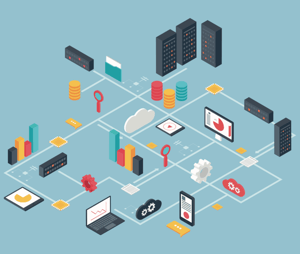
The most challenging aspect of a truly Smart City is also the most important: interoperability. Interoperability is the ability for different systems within a Smart City to communicate and benefit from one another. Right now, there is no real connection between our traffic lights and the sensors that ensure our water is clean, but in a Smart City, these systems could be in constant communication.
Interoperability is about more than just communication. It's about using the information to drive change.
Keeping different systems connected to one another allows for more efficient operations at all levels of the city. The urban environment of the future will be defined by automated collaboration.
2. Data accuracy
For over a decade, data has been the primary driver behind most industries, and smart cities are no exception. Data allows us to provide more engaging services, make smarter decisions, and operate more efficiently. In a Smart City, for the collected data to be used; it must be extremely accurate.
The accuracy of data in smart cities is what determines how effective, safe, and worthwhile they are. Because everything in a Smart City is interconnected, having an inaccurate piece of data in one area could result in a chain of inaccurate processes and recordings.
Data will make cities more sustainable, more secure, and more cost-effective - but that data needs to be as close to the truth as possible for this to happen.
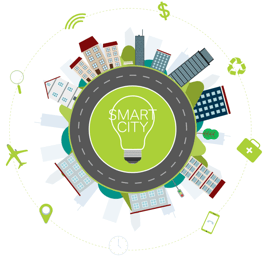
3. City-wide connectivity
Another critical challenge that smart cities, and the IoT industry in general, are facing is that of connectivity. Traditional practices generally aren't viable in the IoT / Smart City sector, which has brought about a need for new industry leaders with forward-thinking perspectives.
The difficulty of city-wide connectivity is due to the strain and data consumption; which is a result of so many devices connected at once. One of the ways that networks are looking into managing this is with new, IoT-centric networks. These networks are low in power consumption and highly scalable, making them ideal for Smart City and IoT connectivity.
4. Security
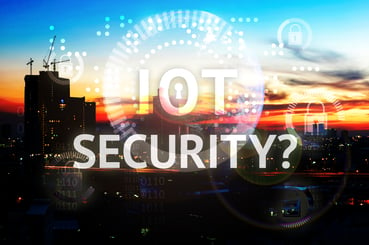
While a large pool of data is one of the key benefits of a Smart City, it is also one of its greatest threats. Having a massive collection of data that not only contains information about a city's citizens but also the inner workings of that city is sure to attract attention from the wrong people.
Therefore, smart cities will have to make security a top priority to ensure that they will be able to cope with threats. Currently, computer scientists across the world are working on a new way of storing data known as "data lakes". Data lakes will make it possible for several different departments within the city to keep their data stored collectively and securely; while also keeping everything unique to its department.
5. Digitally empower citizens
Finally, for a Smart City to be successfully implemented, it is crucial that it leaves its citizens feeling empowered. The changes brought about by smart cities should benefit people through new opportunities, greater security, and more accessible public resources.
So many of the ways that cities function today could be described as outdated. City hall meetings, local ordinances, government data - engaging with these facets of city life, usually, means resorting to procedures and tools that were put into place decades ago.
Smart cities will not only provide new opportunities and resources for their inhabitants but bring existing resources into the 21st century. City laws will be easily accessible, city meetings will be live-streamed, and public resources will be accessible through simple and modern apps.
Conclusion
Smart Cities are going to transform 21st century life. As we’ve highlighted in this article, their implementation poses many challenges; however, by keeping the five factors we’ve covered in mind; your Smart City will become a valuable and worthy investment.

If you are considering investing in Smart Cities, our team has compiled a comprehensive white paper on what a Smart City is, what role IoT plays in the smart transformation, what future we predict for city connectivity and more. Download your free copy.
Speak to a Velos IoT expert
Related articles

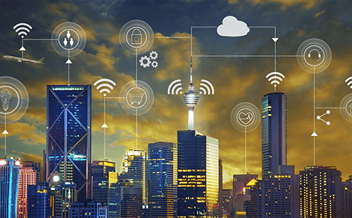
How the Internet of Things (IoT) is transforming Smart Cities
The idea of the "Smart City," is something we've been dreaming of since the days of The Jetsons and...
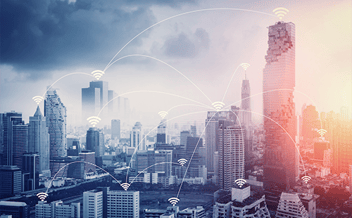
How Velos IoT can give your Smart City an edge in IoT
Velos IoT is leading the telecom and connectivity industry forward by adapting to the latest trends...
